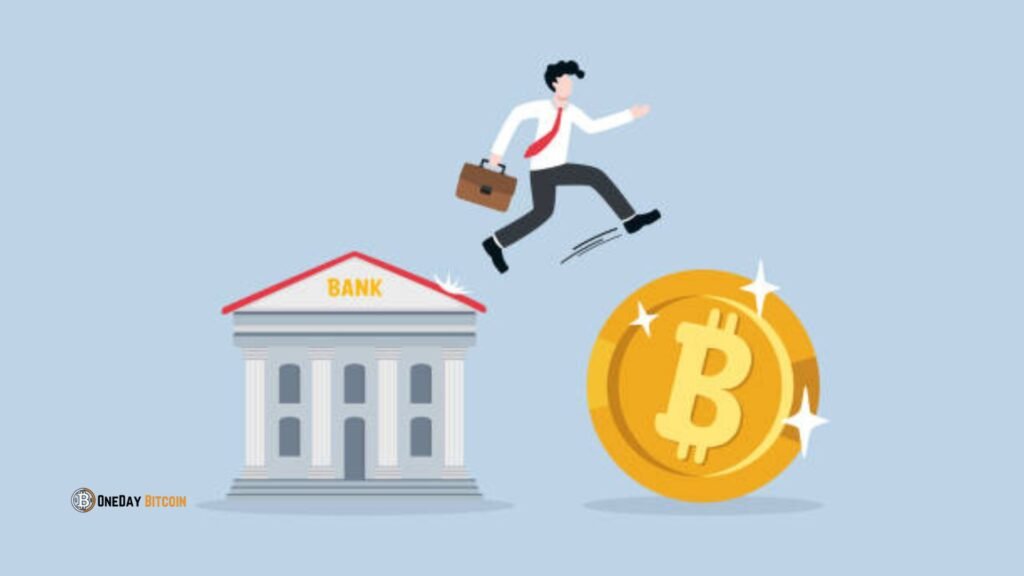Bitcoin has been around since 2009, but its popularity has surged in recent years as more people learn about cryptocurrencies. For beginners, Bitcoin represents an exciting yet complex new frontier in finance. The cryptocurrency’s meteoric rise in value has sparked widespread interest, with seasoned investors and newcomers eager to participate. However, entering the world of Bitcoin can be intimidating for those who are unfamiliar with the technology, the risks, and the market dynamics. This article explores whether Bitcoin is a good option for beginners by discussing its pros, cons, and key considerations for those just starting out.
What is Bitcoin?
Before diving into whether Bitcoin suits beginners, it’s important to understand what it is. Bitcoin is a decentralized digital currency that allows peer-to-peer transactions without needing an intermediary like a bank. It operates on a technology called blockchain, a distributed ledger system that records all Bitcoin transactions transparently and securely.
Bitcoin was designed to be a store of value and a medium of exchange, much like traditional currencies, but with the added benefits of decentralization, transparency, and lower transaction fees. Bitcoin’s supply is capped at 21 million coins, making it a scarce asset, which some argue increases its value over time. It is also highly volatile, meaning its price can fluctuate dramatically in short periods, both upward and downward.
Why Bitcoin Might Be Good for Beginners

Ease of Access
Bitcoin’s accessibility is a major benefit. Unlike traditional financial markets, which demand a large investment, Bitcoin can be bought with a few dollars. Many exchanges, including Coinbase, Binance, and Kraken, accept USD or EUR for Bitcoin purchases. User-friendly interfaces make these platforms straightforward for newcomers to utilize. Unlike stock markets, Bitcoin is open 24/7. This ongoing access lets newcomers trade or invest in Bitcoin anytime, supporting varied schedules and time zones.
Educational Resources
Beginners benefit from the abundance of Bitcoin and cryptocurrency education. Websites, YouTube channels, online courses, and publications explain Bitcoin, trading techniques, and hazards. Online teaching tools from several exchanges make learning easier for newcomers while investing. Beginners may build a solid understanding of Bitcoin and cryptocurrencies by learning the basics, which is essential for investing.
Long-Term Investment Potential
Bitcoin has been called “digital gold.” for long-term investors. Early investors made big profits as its value grew. Some experts believe Bitcoin’s limited supply and increased institutional interest could lead to long-term price growth. Bitcoin may appeal to beginners interested in long-term investing. Bitcoin’s volatility, while scary, offers strategic rewards. Day trading is risky for amateurs, but many investors have succeeded with purchasing and holding (or “HODLing”).
Security and Control
Bitcoin aims to give people money control. Traditional banks can freeze accounts or set limits, while Bitcoin transactions cannot be undone or banned. This gives customers more financial independence and autonomy, which beginners who desire full investing control may like. Bitcoin transactions are safeguarded by cryptography, and hardware wallets or offline private key storage can increase fund security. Security-conscious newcomers can find peace of mind in Bitcoin storage and management.
Challenges for Beginners
While Bitcoin offers many advantages for beginners, there are also several challenges and risks that newcomers should be aware of.
Volatility
Bitcoin is notorious for its price volatility. It is not uncommon for Bitcoin’s price to rise or fall by thousands of dollars in a matter of days. This volatility can be nerve-wracking for beginners, especially those who are not used to seeing such dramatic swings in value. For example, Bitcoin reached an all-time high of over $60,000 in 2021, only to drop below $30,000 within months. Beginners need to understand that Bitcoin’s price can fluctuate wildly and that they should be prepared for potential losses, especially if they buy during a market peak.
Security Risks
Although Bitcoin is secured by the blockchain, there are still security risks associated with buying, storing, and trading Bitcoin. Hackers have targeted cryptocurrency exchanges in the past, leading to significant losses for users. For example, the infamous Mt. Gox exchange hack in 2014 resulted in the loss of 850,000 Bitcoins. Beginners must educate themselves on best security practices, such as using two-factor authentication (2FA), storing funds in hardware wallets, and avoiding storing large amounts of Bitcoin on exchanges. Failure to properly secure their Bitcoin could result in theft or loss.
Complexity of Transactions
Although buying Bitcoin has become more accessible, understanding the underlying technology and transaction processes can be complex for beginners. Concepts like private keys, public addresses, and transaction fees may be unfamiliar to new users, potentially leading to mistakes such as sending funds to the wrong address or paying high transaction fees. Additionally, while Bitcoin transactions are relatively fast, they are not instantaneous, and fees can vary depending on network congestion. To avoid costly mistakes, beginners should familiarize themselves with how the Bitcoin network operates.
Regulatory Uncertainty
The regulatory landscape for Bitcoin is still evolving, and different countries have different approaches to its legality and use. While Bitcoin is legal in many places, some governments have imposed restrictions or outright bans on cryptocurrency trading. For example, China has cracked down on cryptocurrency trading and mining, causing significant disruptions in the market. For beginners, understanding the regulatory environment in their country is essential. They should also be aware that changes in regulation can impact the price and accessibility of Bitcoin.
Tips for Beginners
For those who are just getting started with Bitcoin, here are a few tips to help you navigate the market successfully:

- Start Small: Given Bitcoin’s volatility, it’s wise to start with a small investment you can afford to lose. This will allow you to get comfortable with the market without risking too much.
- Educate Yourself: Before investing, take the time to learn about Bitcoin, how it works, and the risks involved. Knowledge is key to making informed decisions.
- Choose a Reputable Exchange: When buying Bitcoin, use a reputable exchange with strong security measures. Popular exchanges like Coinbase, Kraken, and Binance are good starting points for beginners.
- Practice Security: Always enable two-factor authentication on your accounts, and consider using a hardware wallet to store your Bitcoin securely. Never share your private keys or recovery phrases with anyone.
- Be Prepared for Volatility: Understand that Bitcoin’s price can be highly volatile, and be mentally prepared for significant price swings. Avoid panic selling during market dips, and have a long-term investment strategy in place.
- Diversify: While Bitcoin may be your primary focus, it’s a good idea to diversify your portfolio with other assets, both within and outside the cryptocurrency space, to mitigate risk.
Also Read: Bitcoin Mining Apps Real or Fake?
In summary
Are newcomers to Bitcoin a good fit? Assuming you are well-informed and use caution, the answer is yes. Bitcoin presents novice investors with intriguing potential, but they must not ignore the risks that come with it. Newbies need to start small, grasp the basics, and practice good security habits to properly traverse the world of Bitcoin and perhaps benefit from its long-term growth. Do your homework, be aware of the potential downsides, and never put more money into an investment than you can afford to lose.


